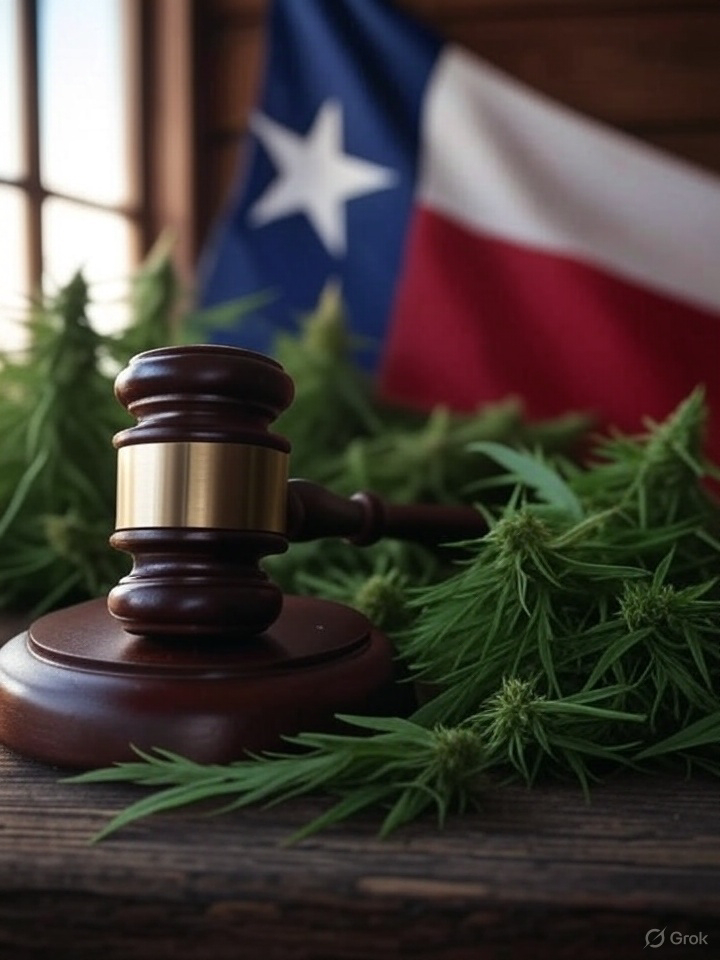Updates on hemp laws in Texas THC∆⁸ THC∆⁹
Updates on Hemp-Derived Delta-8 and Delta-9 THC Legality in Texas (as of June 16, 2025)
Since the last update on May 31, 2025, there have been developments regarding the legality of hemp-derived Delta-8 and Delta-9 THC products in Texas. Below is the latest information based on recent sources and posts on X:
Current Legal Status:
- Hemp-derived Delta-8 and Delta-9 THC products remain legal in Texas as of June 16, 2025, provided they contain no more than 0.3% Delta-9 THC by dry weight, as per the 2018 Farm Bill and Texas House Bill 1325 (2019). This status is upheld by a 2021 federal court ruling and a Texas Supreme Court injunction that keeps Delta-8 legal pending a final ruling.
- Senate Bill 3 (SB 3): The Texas Legislature passed SB 3 in May 2025, which would ban all hemp-derived THC products, including Delta-8 and Delta-9, except for non-intoxicating CBD and CBG. The bill is on Governor Greg Abbott’s desk, and he has until June 22, 2025, to sign, veto, or let it become law without his signature. If signed or allowed to pass, the ban would take effect on September 1, 2025, criminalizing possession, sale, and manufacture of these products with fines up to $500 for possession and harsher penalties for repeat offenders or sellers.
Recent Developments:
- Governor’s Decision Pending: Governor Abbott has not publicly indicated whether he will sign or veto SB 3. A spokesperson reiterated that he will “thoughtfully review” the bill. Pressure is mounting from both sides:
- Pro-Ban Advocates: Lt. Governor Dan Patrick and law enforcement officials, like Collin County DA Greg Willis, support the ban, citing concerns over unregulated products, potential psychosis, and access by minors. Patrick has called THC products “a poison in our public.”
- Anti-Ban Advocates: The Texas Hemp Business Council, Hometown Hero, and other industry leaders are urging a veto, emphasizing the $8 billion industry’s 50,000 jobs and the benefits of hemp products for managing chronic pain, PTSD, and other conditions. They argue a ban would drive consumers to unsafe black markets controlled by cartels.
- Public Sentiment on X: Recent posts on X reflect strong opposition to SB 3. For example,@TexasHempBizwarned that a ban would fuel black market demand, endangering Texans, while@TheConsciousLeehighlighted the loss of natural alternatives for chronic pain and economic harm to small businesses and farmers.@erindavisnewsnoted Rep. Brian Harrison’s call for a veto, aligning with the hemp industry.
- Legal Challenges: Hometown Hero and the Texas Hemp Business Council are preparing lawsuits to challenge SB 3 if it becomes law, arguing it violates federal hemp legality under the 2018 Farm Bill. The ongoing Texas Supreme Court case on Delta-8’s classification could also impact future legality, with a ruling expected post-2025 legislative session.
- Texas Supreme Court Ruling: On June 12, 2025, the Texas Supreme Court declined to hear the state’s appeal to classify Delta-8 as a Schedule I controlled substance, leaving the 2021 injunction in place. This keeps Delta-8 legal for now, bolstering the hemp industry’s position while SB 3’s fate is decided.
Immediate Future Outlook:
- Until June 22, 2025: The legality of Delta-8 and Delta-9 THC products (with ≤0.3% Delta-9 THC) remains unchanged unless Abbott signs SB 3 earlier. Consumers can continue purchasing these products from licensed retailers or online, subject to Texas Health and Safety Code Chapter 443 requirements.
- Post-June 22, 2025:
- If Vetoed: Delta-8 and Delta-9 THC products will remain legal, though future legislative sessions (e.g., 2027) may revisit restrictions.
- If Signed or Passed Without Signature: The ban will take effect on September 1, 2025, making possession, sale, and manufacture of these products illegal, except for CBD and CBG. Legal challenges could delay or overturn the ban.
- Enforcement Risks: Even with current legality, inconsistent testing and police inability to distinguish legal hemp from illegal marijuana in field tests pose risks of arrest or prosecution. Consumers should ensure products have Certificates of Analysis (COAs) verifying ≤0.3% Delta-9 THC.
Practical Implications for Consumers:
- Access: Delta-8 and Delta-9 THC products (gummies, vapes, edibles) are still available at licensed retailers, smoke shops, and online, but consumers should verify compliance with the 0.3% THC limit.
- Chronic Pain Management: If SB 3 becomes law, access to hemp-derived THC for chronic pain could be curtailed. The Texas Compassionate Use Program (TCUP) may offer an alternative, as House Bill 46 (H.B. 46) is under consideration to expand medical cannabis access for chronic pain. However, H.B. 46’s final passage is uncertain due to ongoing conference committee negotiations.
- Action Steps: Industry advocates encourage Texans to contact Governor Abbott’s office to urge a veto of SB 3, citing its impact on health and economic benefits.
Summary:
Hemp-derived Delta-8 and Delta-9 THC products are legal in Texas as of June 16, 2025, but their future hinges on Governor Abbott’s decision on SB 3 by June 22, 2025. A veto would preserve the status quo, while passage would ban these products starting September 1, 2025, prompting likely legal battles. The Texas Supreme Court’s recent decision to maintain Delta-8’s legality provides temporary relief for the industry. For chronic pain patients, the potential TCUP expansion offers hope, but its outcome remains unclear. Stay updated via sources like the Texas Tribune, Cannabis Business Times, or the Texas Hemp Business Council’s website for Abbott’s final decision.

Comments
Post a Comment